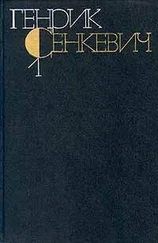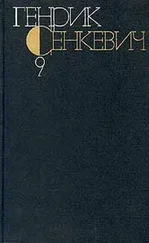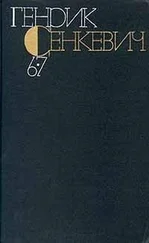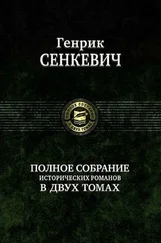Генрик Сенкевич - Pan Michael
Здесь есть возможность читать онлайн «Генрик Сенкевич - Pan Michael» — ознакомительный отрывок электронной книги совершенно бесплатно, а после прочтения отрывка купить полную версию. В некоторых случаях можно слушать аудио, скачать через торрент в формате fb2 и присутствует краткое содержание. Жанр: foreign_antique, foreign_prose, на английском языке. Описание произведения, (предисловие) а так же отзывы посетителей доступны на портале библиотеки ЛибКат.
- Название:Pan Michael
- Автор:
- Жанр:
- Год:неизвестен
- ISBN:нет данных
- Рейтинг книги:3 / 5. Голосов: 1
-
Избранное:Добавить в избранное
- Отзывы:
-
Ваша оценка:
- 60
- 1
- 2
- 3
- 4
- 5
Pan Michael: краткое содержание, описание и аннотация
Предлагаем к чтению аннотацию, описание, краткое содержание или предисловие (зависит от того, что написал сам автор книги «Pan Michael»). Если вы не нашли необходимую информацию о книге — напишите в комментариях, мы постараемся отыскать её.
Pan Michael — читать онлайн ознакомительный отрывок
Ниже представлен текст книги, разбитый по страницам. Система сохранения места последней прочитанной страницы, позволяет с удобством читать онлайн бесплатно книгу «Pan Michael», без необходимости каждый раз заново искать на чём Вы остановились. Поставьте закладку, и сможете в любой момент перейти на страницу, на которой закончили чтение.
Интервал:
Закладка:
Henryk Sienkiewicz
Pan Michael: An Historical Novel of Poland, the Ukraine, and Turkey
My Dear Brown, – You read "With Fire and Sword" in manuscript: you appreciated its character, and your House published it. What you did for the first, you did later on for the other two parts of the trilogy. Remembering your deep interest in all the translations, I beg to inscribe to you the concluding volume, "Pan Michael."
JEREMIAH CURTIN.Valentia Island, West Coast of Ireland,
August 15. 1893.
INTRODUCTION
The great struggle begun by the Cossacks, and, after the victory at Korsun, continued by them and the Russian population of the Commonwealth, is described in "With Fire and Sword," from the ambush on the Omelnik 1 1 "With Fire and Sword," page 4.
to the battle of Berestechko. In "The Deluge" the Swedish invasion is the argument, and a mere reference is made to the war in which Moscow and the Ukraine are on one side and the Commonwealth on the other. In "Pan Michael," the present volume and closing work of the trilogy, the invader is the Turk, whose forces, though victorious at Kamenyets, are defeated at Hotin.
"With Fire and Sword" covers the war of 1648-49, which was ended at Zborovo, where a treaty most hateful to the Poles was concluded between the Cossacks and the Commonwealth. In the second war there was only one great action, that of Berestechko (1651), an action followed by the treaty of Belaya Tserkoff, oppressive to the Cossacks and impossible of execution.
The main event in the interval between Berestechko and the war with Moscow was the siege and peace of Jvanyets, of which mention is made in the introduction to "With Fire and Sword."
After Jvanyets the Cossacks turned to Moscow and swore allegiance to the Tsar in 1654; in that year the war was begun to which reference is made in "The Deluge." In addition to the Cossack cause Moscow had questions of her own, and invaded the Commonwealth with two separate armies; of these one moved on White Russia and Lithuania, the other joined the forces of Hmelnitski.
Moscow had rapid and brilliant success in the north. Smolensk, Orsha, and Vityebsk were taken in the opening campaign, as were Vilno, Kovno, and Grodno in the following summer. In 1655 White Russia and nearly all Lithuania came under the hand of the Tsar.
In view of Moscow's great victories, Karl Gustav made a sudden descent on the Commonwealth. The Swedish monarch became master of Great and Little Poland almost without a blow. Yan Kazimir fled to Silesia, and a majority of the nobles took the oath to Karl Gustav.
Moving from the Ukraine, Hmelnitski and Buturlin, the Tsar's voevoda, carried all before them till they encamped outside Lvoff; there the Cossack hetman gave audience to an envoy from Yan Kazimir, and was persuaded to withdraw with his army, thus leaving the king one city in the Commonwealth, a great boon, as was evident soon after.
When Swedish success was almost perfect, and the Commonwealth seemed lost, the Swedes laid siege to Chenstohova. The amazing defence of that sanctuary roused religious spirit in the Poles, who had tired of Swedish rigor; they resumed allegiance to Yan Kazimir, who returned and rallied his adherents at Lvoff, the city spared by Hmelnitski. In the attempt to strike his rival in that capital of Red Russia, Karl Gustav made the swift though calamitous march across Poland which Sienkiewicz has described in "The Deluge" so vividly.
Soon after his return from Silesia, the Polish king sent an embassy to the Tsar. Austria sent another to strengthen it and arrange a treaty or a truce on some basis.
Yan Kazimir was eager for peace with Moscow at any price, especially a price paid in promises. The Tsar desired peace on terms that would give the Russian part of the Commonwealth to Moscow, Poland proper to become a hereditary kingdom in which the Tsar himself or his heir would succeed Yan Kazimir, and thus give to both States the same sovereign, though different administrations.
An agreement was effected: the sovereign or heir of Moscow was to succeed Yan Kazimir, details of boundaries and succession to be settled by the Diet, both sides to refrain from hostilities till the Swedes were expelled, and neither to make peace with Sweden separately.
Austria forced the Swedish garrison out of Cracow, and then induced the Elector of Brandenburg to desert Sweden. She did this by bringing Poland to grant independence to Princely, that is, Eastern Prussia, where the elector was duke and a vassal of the Commonwealth. The elector, who at that time held the casting vote in the choice of Emperor, agreed in return for the weighty service which Austria had shown him to give his voice for Leopold, who had just come to the throne in Vienna.
Austria, having secured the imperial election at Poland's expense, took no further step on behalf of the Commonwealth, but disposed troops in Southern Poland and secured her own interests. The Elector, to make his place certain in the final treaty, took active part against Sweden. Peace was concluded in 1657 and ratified in 1660 at Oliva, With the expulsion of the Swedes the historical part of "The Deluge" is ended, no further reference being made to the main war between the Commonwealth and Moscow.
Since the Turkish invasion described in "Pan Michael" was caused by events in this main war, a short account of its subsequent course and its connection with Turkey is in order in this place.
Bogdan Hmelnitski dreaded the truce between Moscow and Poland. He feared lest the Poles, outwitting the Tsar, might recover control of the Cossacks; hence he joined the alliance which Karl Gustav had made with Rakotsy in 1657 to dismember the Commonwealth. Rakotsy was defeated, and the alliance failed; both Moscow and Austria were opposed to it.
In 1657 Hmelnitski died, and was succeeded as hetman by Vygovski, chancellor of the Cossack army, though Yuri, the old hetman's son, had been chosen during his father's last illness. Vygovski was a noble, with leanings toward Poland, though his career was firm proof that he loved himself better than any cause.
In the following year the new hetman made a treaty at Gadyach with the Commonwealth, and in conjunction with a Polish army defeated Prince Trubetskoi in a battle at Konotop. The Polish Diet annulled now the terms of the treaty concluded with Moscow two years before. Various reasons were alleged for this action; the true reason was that in 1655 the succession to the Polish crown had been offered to Austria, and, though refused in public audience, had been accepted in private by the Emperor for his son Leopold. In the following year Austria advised the Poles unofficially to offer this crown (already disposed of) to the Tsar, and thus induce him to give the Commonwealth a respite, and turn his arms against Sweden.
The Poles followed this advice; the Tsar accepted their offer. When the service required had been rendered the treaty was broken. In the same year, however, Vygovski was deposed by the Cossacks, the treaty of Gadyach rejected, and Yuri Hmelnitski made hetman. The Cossacks were again in agreement with Moscow; but the Poles spared no effort to bring Yuri to their side, and they succeeded through the deposed hetman, Vygovski, who adhered to the Commonwealth so far.
Both sides were preparing their heaviest blows at this juncture, and 1660 brought victory to the Poles. In the beginning of that year Moscow had some success in Lithuania, but was forced back at last toward Smolensk. The best Polish armies, trained in the Swedish struggle, and leaders like Charnyetski, Sapyeha, and Kmita, turned the scale in White Russia. In the Ukraine the Poles, under Lyubomirski and Pototski, were strengthened by Tartars and met the forces of Moscow under Sheremetyeff, with the Cossacks under Yuri Hmelnitski. At the critical moment, and during action, Yuri deserted to the Poles, and secured the defeat of Sheremetyeff, who surrendered at Chudnovo and was sent a Tartar captive to the Crimea.
Читать дальшеИнтервал:
Закладка:
Похожие книги на «Pan Michael»
Представляем Вашему вниманию похожие книги на «Pan Michael» списком для выбора. Мы отобрали схожую по названию и смыслу литературу в надежде предоставить читателям больше вариантов отыскать новые, интересные, ещё непрочитанные произведения.
Обсуждение, отзывы о книге «Pan Michael» и просто собственные мнения читателей. Оставьте ваши комментарии, напишите, что Вы думаете о произведении, его смысле или главных героях. Укажите что конкретно понравилось, а что нет, и почему Вы так считаете.









